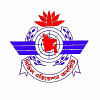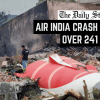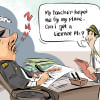Irregularities are with regulator

It is a brazen example of how a certain job becomes no-holds-barred in the Civil Aviation Authority of Bangladesh (Caab), the regulatory body of the civil airlines.
He is the man mandated to keep the private airlines under the safety and regulation scanner of the Caab. He is as well the man who has received an amount no less than $30,000 from a private operator to foot the bill of his overseas training and is flying their planes to add scores to his personal profile.
Yet, you cannot blame Wing Commander Chowdhury Md Zia-Ul-Kabir, the director of flight safety and regulations. It's simply because he is authorised to operate beyond organisational rules and international regulations.
A letter, dated 29.12.2016, of the civil aviation and tourism ministry permitted Zia to receive financial assistance from the US-Bangla Airlines Ltd and take part in a "type rating" training on Boeing 737 in Indonesia from January 1 to 19 last year.
Signed by an Assistant Secretary, Md Abdur Rashid, the letter states, "All expenses in connection with the visit will be borne by the US Bangla Airlines Ltd."
The Daily Star has obtained a copy of the letter.
The exact amount of money that Zia had taken from the US-Bangla authorities could not be confirmed. But the fee for a "type rating" training in Indonesia is around $26,000, and the amount should be no less than $30,000 including accommodation, food and conveyance bills.
The ministry's generosity did not end there. "He will be treated as on duty during the period of this visit. He will draw his pay, allowances and other charges," the letter adds.
However, with this training, Zia now qualifies to fly that particular model of Boeing anywhere in the world. But with this undue privilege, he also pulls down a big question mark on his credibility and that of the regulatory body as well.
Things got all the more complicated when a US-Bangla Airlines crash-landed in Nepal on March 12, claiming the lives of 50 -- 27 of them Bangladeshis.
Since the tragedy, both the US-Bangla Airlines and its regulator Caab are facing a flurry of criticism over a whole range of safety issues -- from flight maintenance to pilot's fatigue. Ironically, Zia is also mandated to play a crucial role in the Caab's probe into the incident.
The permission clearly created scope for conflict of interest among the regulatory body's inspectors, with professional decisions being undermined through compromises in the process.
Why the Caab and the ministry bent the rules and allowed Zia to take the favour from a private airline remains a million-dollar question. When approached, the ministry remained tight-lipped and the Caab simply said the permission was given during the tenure of the previous chairman.
And current Chairman Air Vice Marshal M Naim Hassan, who took over the Caab helm in September last year, said he has no idea why his predecessor approved the proposal to send Zia for training in Indonesia at a private airline's expense. He also declined to make any comment on the ICAO rules.
The answer that came from the US-Bangla Airlines is quite straightforward.
"It was not our option or choice. We didn't go to Caab with any such proposal," said Imran Asif, chief executive officer of the airline.
"We bore all the expenses of Zia-Ul-Kabir as the proposal came from Caab."
Zia, on the other hand, claimed that it is an international practice for officials of civil aviation authority to take training at private airlines' expense.
Many high Caab officials took such training in the past, he told The Daily Star.
Imran further claimed that they had also borne expenses of Captain Salahuddin M Rahmatullah, the then chief flight operation inspector of Caab, for training on Bombardier Dash-8 aircraft in Ethiopia in September, 2015, following Caab instruction.
Asked, the Caab chairman said he didn't know whether any other Caab officials, except for Zia, had received training at private airlines' expense.
The rules of the International Civil Aviation Organisation (ICAO), of which Bangladesh is a signatory, on training of technical personnel are very clear.
"As a general rule, it is not desirable for the CAA (Civil Aviation Authority) inspector to obtain qualifications from an operator under the CAA inspectional jurisdiction," reads a relevant para of the ICAO manual.
"The state authorities must be prepared to finance their technical personnel's initial and recurrent training," it mentions.
The parliamentary standing committee on the civil aviation and tourism ministry recently woke up to the harsh reality, spurring the Caab to investigate whether its inspectors compromise flight safety in exchange for undue benefits from private airlines.
"After the US-Bangla plane crash, we received allegations from different sources that the Caab inspectors take undue benefits from private airlines and compromise safety and maintenance of aircraft. The committee asked the Caab chairman to enquire into the allegations," Col (retd) Faruk Khan, chief of the committee, told this newspaper after a meeting at the Jatiya Sangsad Bhaban last week.
Industry insiders alleged that Zia, a former aide-de-camp to the prime minister, knows well how to use his connections and get the Caab to do things his way.
Zia is found to have a completely different view about a regulator's role and the critical issue of conflict of interest. He even sees no problem in flying planes of operators under his jurisdiction.
"As the Caab does not have its own aircraft, we need to depend on private airlines' aircraft to increase our professional excellence in the interest of the country's aviation sector," he told The Daily Star.
"And it is me who has introduced the practice for the first time in the Caab."
He insisted that there is no conflict of interest in it, as he does not take any benefit or money from them in exchange for being their pilot. According to him, the civil aviation ministry gave him permission to fly private airlines' aircraft after his office hour for free.
"I usually fly the aircraft at night after my office hours," claimed Zia, arguing that his stint with private airline is not creating problems to anyone, and that the country is getting an expert on aviation.
Seeking anonymity, an additional secretary at the civil aviation and tourism ministry admitted that they had given permission to Zia on special consideration so that he could increase his flying hours.
"This will also benefit the airlines as they don't have to spend money for pilots," reasoned the official.
But aviation experts, pilots and other private operators see it as a beginning to greater irregularities.
"What happens when supervisors take advantage of their positions? ... Compromise leads to chaos and then to disaster. And that is precisely the case with Caab," asked a high official of another private airline, wishing not to be named.
"US-Bangla planes were allowed to fly frequently in low visibility (for fog) during the last winter. None but the US-Bangla was allowed. The permission was given by the Caab's flight safety department that Zia leads. Why do you think it happened?" he asked with a wry smile on his face.
The CEO of the US-Bangla Airline flatly rejected the allegations.
Former civil aviation minister GM Quader was found too critical of the Caab.
Talking to The Daily Star recently, he said safety and maintenance get compromised in the Caab for bribes and undue facilities taken by its officials.
"I got three evidence where Caab officials compromised on fitness of three aircraft of two private airlines in exchange for undue facilities," said Quader, adding that some air force officials, who work for the Caab on deputation for a brief stint, often lack commitment.
Captain SM Helal, former president of Bangladesh Airlines Pilot Association, said private airlines do not care the Caab as they "manage" Caab officials with undue benefits.
"If they [Caab officials] are in my pocket, then why should I bother to go by Caab regulations?"
All the stakeholders are however of the same opinion that Bangladesh has an immense potential in the aviation sector. And an efficient Caab can only make that ambition fly and a corrupt Caab get it grounded.

 For all latest news, follow The Daily Star's Google News channel.
For all latest news, follow The Daily Star's Google News channel. 








Comments